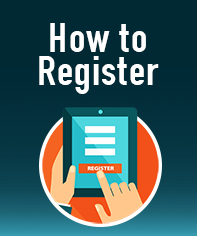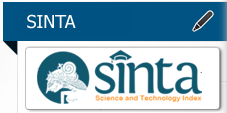PENGEMBANGAN MODEL EDUKASI PASIEN PASKA OPERASI ORTOPEDI
Abstract
Abstrak
Latar Belakang: Setiap pasien yang ada di Rumah Sakit berhak untuk mendapatkan informasi dan edukasi tentang kesehatannya. Edukasi harus diberikan pada awal diagnosis dan mengawal perjalanan penyakit. Masalah muskuloskeletal pasien paska operasi ortopedi dapat bersifat akut dan kronis dengan kemungkinan efek yang luas. Efek yang paling jelas adalah adanya nyeri dan dampak terhadap mobilitas. Peran perawat adalah membantu pasien melanjutkan hidup atau mencapai status kesehatan yang mereka inginkan dan mampu beradaptasi. Namun berdasarkan penelitian sebelumnya dan hasil survei langsung kepada pasien, kita mengetahui bahwa harapan pasien bedah ortopedi rawat jalan mengenai pengetahuan tidak selalu terpenuhi dan belum ditemukan model dan metode yang tepat berdasarkan kebutuhan pasien. Keperawatan sebagai pelayanan professional, dalam aplikasinya harus dilandasi oleh dasar keilmuan keperawatan yang kokoh, dengan demikian perawat harus mampu berfikir logis dan kritis dalam menelaah dan mengidentifikasi fenomena respon manusia. Salah satu diantaranya yang bisa diterapkan adalah teori model keperawatan Nola J Pender. Model promosi kesehatan ini konsisten dan berfokus pada pentingnya promosi dan pencegahan penyakit untuk dilakukan guna peningkatan kesehatan klien atau masyarakat yang lebih baik dan optimal.
Tujuan: Untuk menjawab pertanyaan tentang pengembangan model edukasi pasien yang tepat dan efisien sesuai dengan kebutuhan dan harapan pasien, edukasi yang bisa dipahami dan bisa dilaksanakan dengan mudah oleh pasien paska operasi ortopedi.
Metode: Laporan ini merupakan suatu literature review, di dalamnya terdapat 10 artikel yang diambil dari data base komputer melalui Research Gate, International Journal of Caring Sciences, PubMed, Elsevier, Semantic Scholar.
Kesimpulan: Berbagai model edukasi terus dikembangkan untuk menunjang keefektifan dari alat edukasi kesehatan yang hemat waktu dan tenaga, buklet terbukti membantu pasien pasca operasi ortopedi yang tidak yakin tentang apa yang harus atau tidak boleh mereka lakukan setelah operasi ; sementara itu secara bersamaan dapat bertindak sebagai alat hemat waktu dan tenaga, dan edukasi berbasis internet dapat digunakan dalam edukasi pasien bedah ortopedi rawat jalan untuk meningkatkan pemberdayaan kognitif pasien.
Abstract Background: Every patient in the hospital has the right to get information and education about his health. Education should be given early in the diagnosis and monitor the course of the disease. The musculoskeletal problems of post orthopedic surgery patients can be acute and chronic with a wide range of possible effects. The most obvious effect is the presence of pain and the impact on mobility. The nurse's role is to help patients continue to live or achieve the health status they want and are able to adapt. However, based on previous research and the results of direct patient surveys, we know that the expectations of outpatient orthopedic surgery patients regarding knowledge are not always met and the appropriate models and methods have not been found based on patient needs. Nursing as a professional service, in its application must be based on a solid scientific basis of nursing, thus nurses must be able to think logically and critically in studying and identifying the phenomenon of human response. One of them that can be applied is Nola J Pender's nursing model theory. This health promotion model is consistent and focuses on the importance of disease promotion and prevention to be carried out in order to improve the health of clients or the community for a better and optimal.Objective: To answer questions about developing appropriate and efficient patient education models according to patient needs and expectations, education that can be understood and can be easily implemented by post-orthopedic patients.Methods: This report is a literature review, in which there are 10 articles taken from a computer database through Research Gate, International Journal of Caring Sciences, PubMed, Elsevier, Semantic Scholar.Conclusion: Various educational models continue to be developed to support the effectiveness of health education tools that save time and effort, booklets have been proven to help post orthopedic surgery patients who are unsure about what they should or should not do after surgery ; while it can simultaneously act as a time and effort saving tool, and internet-based education can be used in outpatient orthopedic surgery patient education to increase patient cognitive empowerment.
Keywords
Full Text:
PDFReferences
Daftar Pustaka
Dayucos A, French LA, Kelemen A, Liang Y, S. L. C. (2019). Creation and evaluation of a preoperative education website for hip and knee replacement patients-a pilot study. Medicina (Kaunas). 55:2.
Gjorgjievski, M., & Ristevski, B. (2019). Postoperative Management Considerations of the Elderly Patient Undergoing Orthopaedic Surgery. Injury. https://doi.org/10.1016/j.injury.2019.12.027
Goz, V., Anthony, C., Pugely, A., Lawrence, B., Spina, N., Brodke, D., & Spiker, W. R. (2019). Software-Based Postoperative Communication With Patients Undergoing Spine Surgery. 9(1), 14–17. https://doi.org/10.1177/2192568217728047
Gurcayir, D. (2017). The Effects of the Training Provided to Patients who are scheduled for Hip Prosthesis Surgery on the Level of Postoperative Comfort and Daily Activities. 10(1), 403–412.
Haryani, W., Indriani, T., Artini, S. (2015). Promosi Kesehatan Gigi Meningkatkan Status kebersihan Gigi Mahasiswa. Jurnal Teknologi Kesehatan.
Heikkinen, K., & Salanterä, S. (2012). Ambulatory Orthopaedic Surgery Patients ’ Knowledge with Internet- based Education. 295–300. https://doi.org/10.3414/ME11-02-0004
Johnson HM, LaMantia JN, Brown CM, et al. (2017). My Hypertension Education and Reaching Target (MyHEART): development and dissemination of a patient-centered website for young adults with hypertension. JMIR Cardio. 1:2. doi:10.2196/cardio.8025%0A
Kneale, J. D. (2011). KEPERAWATAN OROPEDIK & TRAUMA, Ed. 2 ( tuti et all Hadiningsih (ed.); 2nd ed.). Buku Kedokteran EGC.
Li, G., Wang, C., Zhu, X., Xin, M., & Jiang, L. (2019). Effects of high-quality nursing on patients after orthopedic surgery with deep venous thrombosis of the lower extremities. 12(7), 9058–9065.
PERMENKES, 151 10 (2018).
Parsa, A., Nazal, M., Molenaars, R. J., Agrawal, R. R., & Martin, S. D. (2020). Evaluation of Hip Preservation – related Patient Education Materials From Leading Orthopaedic Academic Centers in the United States and Description of a Novel Video Assessment Tool Abstract. https://doi.org/10.5435/JAAOSGlobal-D-20-00064
Perry, P. &. (2006). Fundamental Of Nursing: Concepts, Procces and practice, St Louis: CV Mosby Company.
Preference, P. (2020). Post-Arthroscopic Rotator Cuff Repair Rehabilitation Booklet : A Patient-Based Evaluation.
Rahmani, M., NAsrin, Bahraminejad, & MRezaei, A. (2020). The Effect of Family ‑ Oriented Educational Intervention on Postoperative Pain after Orthopedic Surgery. November 2019, 47–52. https://doi.org/10.4103/ijnmr.IJNMR
Risnah & Irwan, M. 2011. (2011). Falsafah dan teori keperawatan dalam integrasi keilmuan (Musdalifah (ed.)). Allauddin University Press.
Saw, M. M., Kruger-Jakins, T., Edries, N., & Parker, R. (2016). Significant improvements in pain after a six-week physiotherapist-led exercise and education intervention, in patients with osteoarthritis awaiting arthroplasty, in South Africa: A randomised controlled trial. BMC Musculoskeletal Disorders, 17(1), 1–14. https://doi.org/10.1186/s12891-016-1088-6
Tzu-Ting Huang, Ph D, R. (2017). The Effects of the Empowerment Education Program in Older Adults with Total Hip Replacement Surgery. International Journal of Laboratory Hematology, 38(1), 42–49. https://doi.org/10.1111/ijlh.12426
Wibowo, H., Susilarti, Suyatmi, D. (2014). Promosi kesehtatan gigi menggunakan media leaflet terhadap tingkat pengetahuan dan minat perawatan orthodonsi pada siswa sekolah menengah pertama. Jurnal Gigi Dan Mulut Poltekkes Kemenkes Yogyakarta, 1, 2.
Zhang, C., Li, Q., Li, F., Zhang, Y., Tang, Y., Hou, J., & Yang, R. (2020). Post-arthroscopic rotator cuff repair rehabilitation booklet: A patient-based evaluation. Patient Preference and Adherence, 14, 1493–1500. https://doi.org/10.2147/PPA.S263645
DOI: https://doi.org/10.26751/jikk.v13i1.1292
Refbacks
- There are currently no refbacks.
Universitas Muhammadiyah Kudus
Jl. Ganesha Raya No. 1 Purwosari Kudus 59316
Tel/ Fax +62-291-437218
Whatsapp : wa.me/+6285117477445
Email : lppm@umku.ac.id
Jurnal Ilmu Keperawatan dan Kebidanan Indexed by:

This work is licensed under a Creative Commons Attribution-ShareAlike 4.0 International License.





_Logo_(PNG-720p)_-_Vector69Com1.png)





